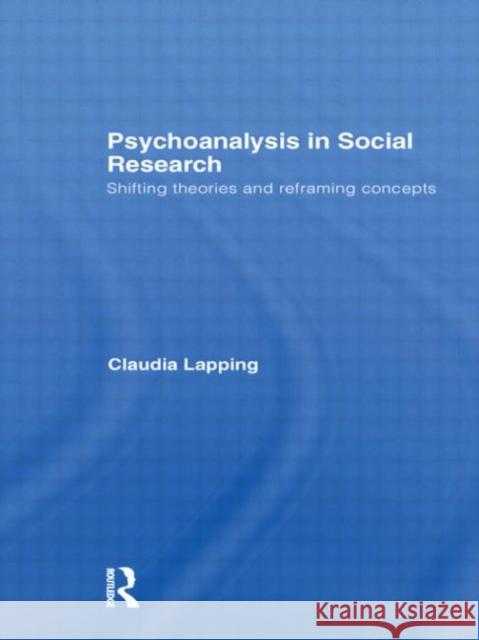Psychoanalysis in Social Research: Shifting Theories and Reframing Concepts » książka
Psychoanalysis in Social Research: Shifting Theories and Reframing Concepts
ISBN-13: 9780415656863 / Angielski / Miękka / 2012 / 200 str.
Psychoanalysis in Social Research: Shifting Theories and Reframing Concepts
ISBN-13: 9780415656863 / Angielski / Miękka / 2012 / 200 str.
(netto: 261,17 VAT: 5%)
Najniższa cena z 30 dni: 261,89
ok. 22 dni roboczych.
Darmowa dostawa!
The use of psychoanalytic ideas to explore social and political questions is not new. Freud began this work himself and social research has consistently drawn on his ideas. This makes perfect sense. Social and political theory must find ways to conceptualise the relation between human subjects and our social environment; and the distinctive and intense observation of individual psychical structuring afforded within clinical psychoanalysis has given rise to rich theoretical and methodological resources for doing just this. However, psychoanalytic concepts do not remain the same when they are rearticulated in the context of research. This book traces the reiteration and transformation of concepts in the psychoanalytic theory of Freud, Klein and Lacan, the social theory of Butler, Derrida, Foucault, Laclau and Zizek, and case studies of empirical research ranging from the classic Tavistock Institute studies to contemporary work in politics, gender studies, cultural studies and education.Each chapter explores one cluster of concepts: Melancholia, loss and subjectivity Overdetermination and free association Resistance, reflexivity and the compulsion to repeat Repression, disavowal and foreclosure Psychic defenses and social defenses Arguing against the reification of psychoanalytic concepts, Claudia Lapping suggests the need for a reflexive understanding of the play of attachments and substitutions as concepts are reframed in the contrasting activities of psychoanalysis and research.











